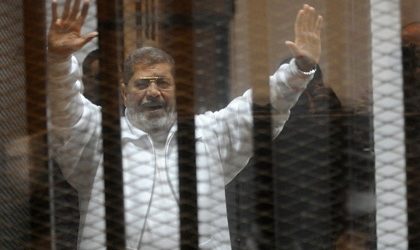NO TENSION OVER RUSIAN-TURKEY RELATION: TURKISH FM
 Ankara, 22 Dul Hijja 1434/26 October 2013 (MINA) – The incident over the Black Sea on Wednesday in which Turkish F-16 jets pursued a Russian military aircraft flying near Turkish airspace must not be assessed as a sign of tension between the countries, Turkish Foreign Minister Ahmet Davutoglu said on Saturday.
Ankara, 22 Dul Hijja 1434/26 October 2013 (MINA) – The incident over the Black Sea on Wednesday in which Turkish F-16 jets pursued a Russian military aircraft flying near Turkish airspace must not be assessed as a sign of tension between the countries, Turkish Foreign Minister Ahmet Davutoglu said on Saturday.
Davutoglu explained the Russian aircraft was conducting a drill in accordance with international law, and the pursuit by Turkish F-16s was merely an automatic response toward objects approaching airspace.
Davutoglu responded to questions during a press conference at the ministry in Ankara with his Bulgarian counterpart Kristian Vigenin.
“Sometimes such measures are taken between nations amid these types of exercises… there is no reason to blow this case out of proportion,” he said, Anadolu Agency reported as monitored by Mi’raj News Agency (MINA).
Regarding recent claims that Greek coast guard boats intervened in Turkish boats in the waters of the Kardak islands, Davutoglu said sometimes undesired developments could arise over such issues in the Aegean Sea.
Greece and Turkey experienced a military crisis and dispute over the Kardak islands in 1996.
“Relevant units are following the case. As always, our channels are available to openly talk with Greece and express our concerns,” Davutoglu stated.
On the other hand, diplomatic sources addressing the incident refuted the claims of an intervention on the boats participating in a yacht race in the region, and said the Coast Guard had been contacted. According to sources, a Greek Coast Guard boat returned to Greece’s territorial waters after being warned by a Turkish Coast Guard boat in accordance with usual procedure upon entering the Kardak territorial waters. There was reportedly no intervention of any kind on the yachts.
Since 2003, Russian-Turkish relations began to take a turn which made it different from the Cold War era, when Turkey, as a member of the North Atlantic Treaty Organization (NATO), was considered a frontline state in the divide between the communist bloc and the western bloc. Surprisingly, given the unrest in the North Caucasus and the Balkans on which issue the policies of Ankara and Moscow clashed, these relations changed. There are several factors for this development:
1. Turkey and Russia prioritise their economic and trade relations, and their co-dependence. Turkey needs oil and gas supplies from Russia, and is working to consolidate the distribution of its industrial products in the large Russian market. Russia considers its need to diversify its economic partners, and not to be limited to the main European countries.
2. The economic interests of both countries meet but collide in various strategic plans to extend oil and gas pipelines between the countries of the Caspian Sea, Central Asia, and the Middle East on the one hand and the European market on the other hand. Therefore, they both need to rationally organise their interests.
3. Similarly, the policies of the two countries intersect and collide in the North Caucasus, particularly with regards to the position of Georgia, Armenia and Azerbaijan; and in the Balkans, particularly towards the position of Serbia, Bosnia and Kosovo. To prevent the political differences from deteriorating, it is necessary to have close and continued communication between the two capitals.
4. Turkey will remain Russia’s necessary window to the Mediterranean, just as the Ottoman Empire was in the past..”(T/P04/E1)
Mi’raj News Agency (MINA)





